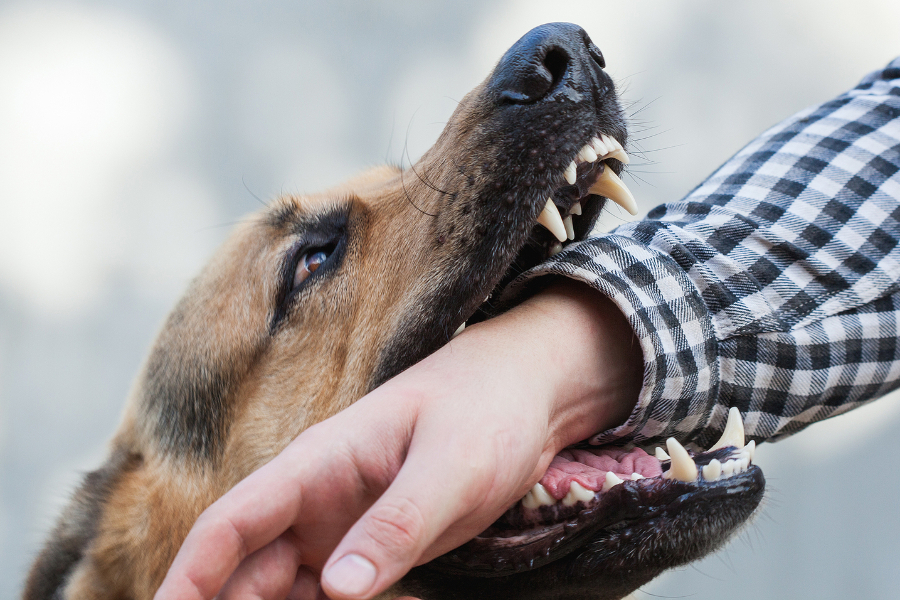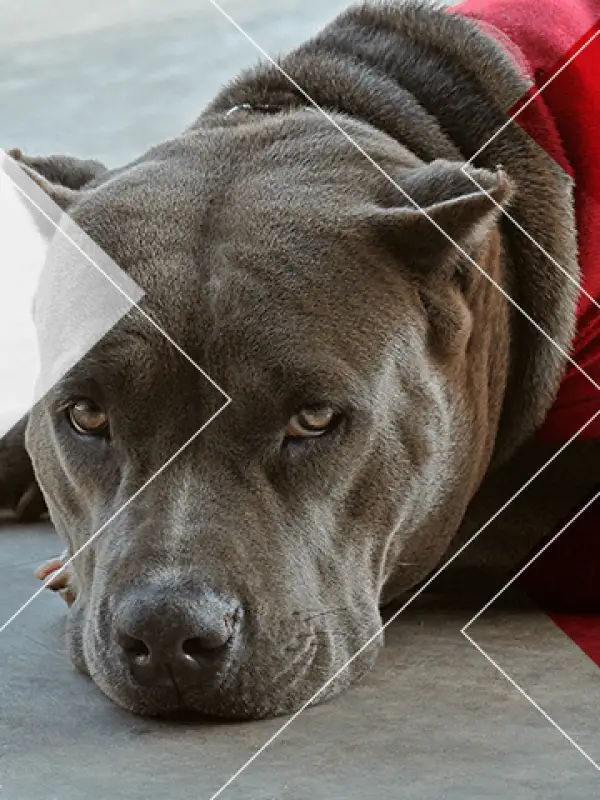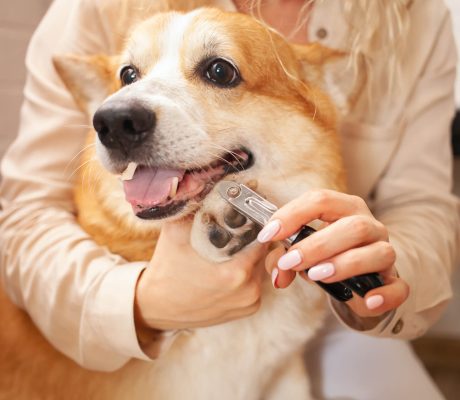German Shepherds, Rottweilers, and Pit Bulls are the dog breeds that bite the most. These breeds are known for their strength and protective instincts, which can sometimes lead to aggressive behavior.
While all dogs have the potential to bite, these breeds have been identified as more likely to exhibit aggressive behavior. When it comes to choosing a dog, it's important to consider the breed's temperament and training needs. Understanding the characteristics of different dog breeds can help prevent potential biting incidents and promote responsible pet ownership.
It's essential for dog owners to provide proper training, socialization, and care for their pets to reduce the risk of aggressive behavior. Additionally, seeking guidance from professional trainers and behaviorists can contribute to a harmonious relationship between dogs and their owners.
Introduction To Canine Aggression
Canine aggression is a complex issue, with certain dog breeds exhibiting a higher tendency to bite. German Shepherds, Rottweilers, and Pit Bulls are among the breeds that have been involved in the most biting incidents. Understanding breed-specific traits can help in preventing aggressive behavior and promoting responsible ownership.
Biting Incidents: A Growing Concern
Canine aggression and biting incidents have become a growing concern in the realm of pet ownership and public safety. The prevalence of dog bites and the severity of the injuries they cause have prompted a closer examination of the factors that contribute to such behavior in dogs.
Scope Of The Article
This article aims to provide an in-depth analysis of dog breeds that are most commonly associated with biting incidents. By examining various breeds and their predispositions to aggression, we seek to shed light on the factors that contribute to canine aggression and offer insights into responsible pet ownership and public safety.

Credit: www.sandlawllc.com
Top Biting Breeds Unveiled
When it comes to dog bites, some breeds are more prone to aggression than others. It's important to understand which breeds are most likely to bite in order to prevent potential incidents and promote responsible pet ownership. Here, we'll unveil the top biting breeds and explore breed-specific aggression and statistical data on dog bites.
Statistical Data On Dog Bites
According to recent studies, approximately 4.5 million dog bites occur in the United States each year. Of these bites, around 20% require medical attention. Children and seniors are the most common victims of dog bites, and the majority of bites occur in the home or a familiar place. Additionally, certain factors such as lack of socialization, training, and supervision can increase the likelihood of a dog bite.
Breed-specific Aggression
While any dog can bite, some breeds have a higher tendency towards aggression than others. The top biting breeds include:
| Breed | Percentage of Reported Bites |
|---|---|
| German Shepherd | 17% |
| Rottweiler | 14% |
| Pit Bulls | 8% |
| Husky | 8% |
| Dobermann | 6% |
| Boxer | 5% |
| Bullmastiff | 4% |
| Chow | 3% |
| Terrier | 3% |
It's important to note that breed-specific aggression does not mean that all dogs of a certain breed will display aggressive behavior. Proper socialization, training, and responsible ownership can greatly reduce the likelihood of a dog bite.
Pit Bulls: The Controversial Leaders
Pit Bulls are often at the center of heated debates due to their reputation as aggressive dogs. Despite being loyal and affectionate pets for many owners, Pit Bulls face scrutiny for their involvement in a significant number of bite incidents.
Pit Bull Attack Patterns
Pit Bulls are known for their strong jaws and tenacious behavior when they feel threatened. In attack scenarios, Pit Bulls tend to exhibit persistent and forceful biting patterns, often causing severe injuries to their victims.
Public Perception Of Pit Bulls
Public perception of Pit Bulls is polarized, with some viewing them as dangerous breeds while others advocate for their gentle nature. Misconceptions and stereotypes contribute to the controversial status of Pit Bulls in society.
Rottweilers: Strength And Jaw Power
Rottweilers are known for their incredible strength and powerful jaw, making them one of the dog breeds with a higher tendency to bite. Their robust build and protective nature contribute to their reputation as formidable guard dogs.
Rottweiler Behavior Traits
Rottweilers are known for their loyalty, confidence, and protective nature. They are intelligent and have a strong work ethic, making them excellent guard dogs and ideal for various tasks such as herding and search and rescue.
Safety Measures
When it comes to handling Rottweilers, it's essential to provide proper training and socialization from an early age. Additionally, it's crucial to establish clear boundaries and assert dominance as the pack leader to prevent any aggressive tendencies.
German Shepherds: Loyal But Formidable
German Shepherds are renowned for their unwavering loyalty and remarkable intelligence. These versatile dogs are often chosen for roles in law enforcement, search and rescue, and as service animals due to their trainability and protective nature. While German Shepherds are known for their loyalty, they can also be formidable when it comes to protecting their territory and loved ones.
Training Impact On German Shepherds
Effective training plays a crucial role in shaping the behavior of German Shepherds. Training them from an early age to socialize with people and other animals can help mitigate any aggressive tendencies. With consistent, positive reinforcement, German Shepherds can learn to channel their protective instincts in a controlled manner.
German Shepherd Biting Statistics
When it comes to biting incidents, German Shepherds are often involved due to their protective nature. However, it's important to note that proper training and socialization can significantly reduce the likelihood of aggressive behavior in this breed. Understanding the factors that contribute to biting incidents can help owners and trainers effectively address and manage any potential issues.
Husky And Malamute Bites
Behavioral Characteristics Of Huskies
Huskies are known for their independent and energetic nature.
Preventing Husky Bites
- Ensure proper socialization from a young age.
- Provide regular exercise to release pent-up energy.
- Use positive reinforcement training techniques.
- Supervise interactions with children and other pets.
Small Breeds: Size Doesn't Matter
Uncover the truth about dog breeds that bite most: size doesn't matter. Despite their small stature, certain breeds like Chihuahuas and Dachshunds are known for their feisty nature and higher tendency to nip. Understanding breed behavior is crucial for responsible pet ownership.
When it comes to dog bites, many people assume that larger breeds are the most dangerous. However, this is not always the case. Small breeds can be just as aggressive and bite just as often as their larger counterparts. In fact, according to a study by the American Veterinary Medical Association, small breeds are actually more likely to bite than larger breeds.
Chihuahuas and Other Small Biters
Chihuahuas are one of the smallest breeds of dog, but they are also one of the most aggressive. In fact, they are known for being snappy and quick to bite. Other small breeds that are known for their biting tendencies include Dachshunds, Jack Russell Terriers, and Pomeranians.
Misconceptions About Small Dog Aggression
There are many misconceptions about small dog aggression. One of the most common is that small dogs are not as dangerous as larger breeds because of their size. However, this is simply not true. Small dogs can cause just as much damage as larger breeds, especially if they bite repeatedly. Another misconception is that small dogs are only aggressive because of poor training or socialization. While this can certainly be a contributing factor, there are also many small breeds that are naturally more aggressive than others.
When it comes to dog bites, size doesn't matter. Small breeds can be just as dangerous as larger breeds, and it's important to take precautions around all dogs, regardless of their size.
Factors Influencing Dog Bites
Dog bites can be influenced by a variety of factors, including the dog's training, socialization, owner responsibility, and the dog's behavior. Understanding these factors is crucial in preventing dog bites and promoting responsible pet ownership.
The Role Of Training And Socialization
Proper training and socialization play a significant role in a dog's behavior and its likelihood of biting. Socializing a dog from an early age helps it become familiar with various environments, people, and other animals, reducing the likelihood of fear-induced aggression. Training also teaches dogs how to respond to commands and behave appropriately in different situations, which can mitigate aggressive tendencies.
Owner Responsibility And Dog Behavior
Owners have a responsibility to ensure that their dogs are well-behaved and do not pose a risk to others. This includes providing adequate exercise, mental stimulation, and a safe environment for the dog. Additionally, understanding canine body language and recognizing signs of stress or discomfort in dogs can help prevent potential biting incidents. Responsible ownership also involves proper containment of the dog and taking measures to prevent it from escaping and posing a threat to others.
Preventing Dog Bites
The breeds that are statistically most likely to bite include German Shepherds, Rottweilers, and Pit Bulls. It's important for dog owners to be aware of these tendencies and take appropriate precautions to prevent dog bites. Understanding a dog's breed-specific behavior is crucial for responsible pet ownership and community safety.
Educating The Public
One effective way to prevent dog bites is through educating the public about dog behavior and body language.
Teach people to recognize signs of fear, anxiety, and aggression in dogs to avoid potential dangerous situations.
Effective Training Techniques
Proper training and socialization are key in preventing dog bites.
Use positive reinforcement methods to teach dogs appropriate behavior and boundaries.
Legal Aspects Of Dog Bites
Bite Laws And Owner Liability
In cases of dog bites, laws vary by state determining owner liability based on factors like provocation and negligence.
Bite Reporting And Statistics
Reporting dog bites is crucial for tracking statistics and identifying trends to improve public safety measures.
Responsible Ownership
Responsible ownership is crucial when it comes to dog breeds that bite most. While certain breeds like Pit Bulls, German Shepherds, and Rottweilers are often associated with biting incidents, it's important to remember that any dog can bite if not properly trained and socialized.
Owners must take responsibility for their dog's behavior and ensure they are trained and treated properly to prevent incidents.
Summary Of Findings
After thorough research, it is evident that certain dog breeds are more prone to biting incidents. Pit Bulls, Rottweilers, and German Shepherds are among the breeds most commonly associated with biting. It's important to note that these incidents are not solely determined by the breed, but also by factors such as socialization, training, and the owner's behavior.
Final Thoughts On Dog Bite Prevention
Preventing dog bites requires responsible ownership and proper training. It's essential for dog owners to prioritize early socialization, obedience training, and proper care. Additionally, understanding a dog's body language and behavior can help prevent potential biting incidents. It's crucial to provide a safe environment for both the dog and those around them.

Credit: www.aaha.org
Frequently Asked Questions
What Dog Breed Has Bitten The Most?
Pit bulls are the dog breed that has bitten the most based on reported incidents.
What Dog Is Least Likely To Bite?
The least likely dog breed to bite includes Irish Setters, Bichon Frise, Beagles, Bulldogs, Basset Hound, Greyhounds, Boxers, and Whippets.
What Is The Most Aggressive Dog?
The most aggressive dog breeds include Pit Bulls, Rottweilers, German Shepherds, and Dobermans. Chihuahuas, Papillons, and Lhasa Apsos are small breeds more likely to bite.
What Are The Top 10 Strongest Dog Bites?
The top 10 dog breeds with the strongest bites are German Shepherd, Rottweiler, Pit Bulls, Husky, Dobermann, Boxer, Bullmastiff, Chow, Terrier, and Akita.
Which Dog Breed Has The Highest Bite Rate?
Pit bulls are known for having the highest attack rates among dog breeds.
Conclusion
Understanding which dog breeds bite most can help prevent potential incidents. It's important to educate ourselves on breed tendencies and promote responsible pet ownership. By being informed and proactive, we can create safer environments for both humans and dogs.











